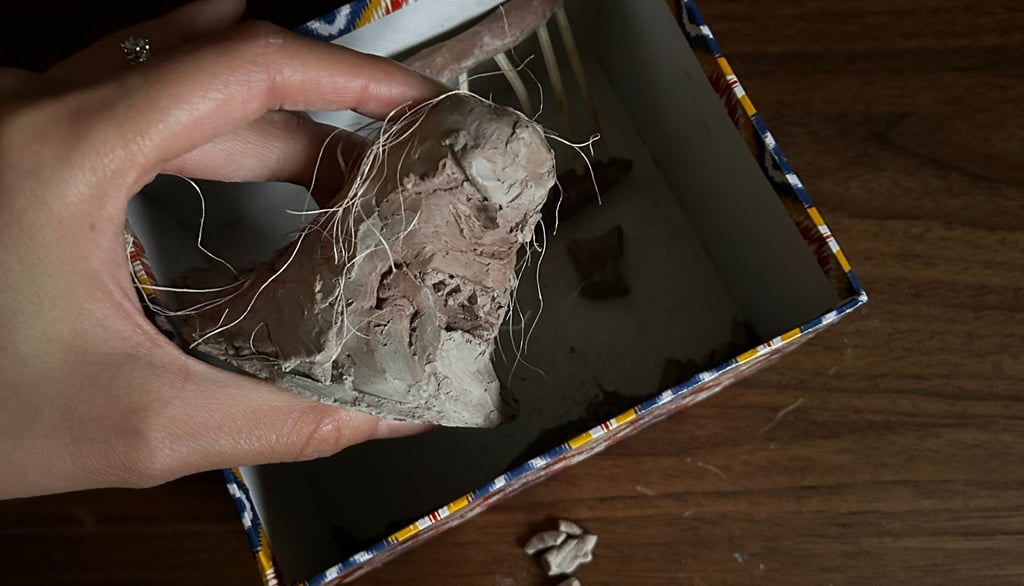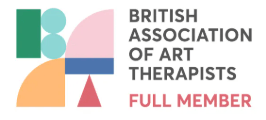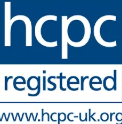Finding Myself in the Marks
Explore how art therapy supports older adults facing memory loss, illness or life changes. This heartfelt story shows how creativity can help reconnect with identity when words are no longer enough.
9/19/2025


Finding Myself in the Marks
As we grow older, we can begin to feel unsure of who we are. Illness, memory loss, or needing help with daily life can make us feel like we are no longer ourselves. But even when words become hard to find, we still have stories to tell. Art can help us remember who we are.
John (a pseudonym) came to art therapy feeling lost and alone. He had been finding it harder to do things he used to enjoy. Like many others who arrive feeling unsure, he told me, “I'm not good at this,” when we first sat down with some pastels. But week by week, mark by mark, that started to change.
There was no pressure. Sometimes we chatted. Sometimes we didn’t speak at all. I offered materials like paints and pens, but there was no “task” to complete. Slowly, he began to enjoy the process. One week, he made a strong squiggly line across the paper and said, “That’s how I feel inside.”
Over time, John began to make more art, often using colours and shapes to express how he felt. He remembered old stories about his family, and moments when he felt strong and full of life. He spoke of sadness too, but also pride.
By the end of our sessions, John smiled and said, “I am an artist.” He had found a new way to know himself again, even when memory slipped away. He said he remembered our sessions, not always the words, but how safe, warm, and meaningful he felt. He remembered the images. He remembered being seen.
Stories like John’s show how powerful art therapy can be. We do not need fancy words. A line, a colour, or a shape can hold so much. As art therapist Connelly (2015) describes, art can help people adjust after big changes, reconnecting with their sense of identity.
Other research supports this too. Ehresman (2014) shares how people with memory loss can still create meaningful art and experience deep emotional connection. Reynolds (2012) highlights how art-making can bring comfort and joy after a stroke, even when words are difficult. Kline (2016) shows how art therapy can support thinking and feelings after brain injury. And as Michaels (2010) reminds us, therapy is not only about recovery, it can be about creating a space to feel human again.
For people like John, and for many older adults, art therapy is not about being good at art. It’s about being seen, feeling safe, and remembering that even when so much changes, we are still here.
Note: To protect privacy, John’s story is a blend of different people I’ve worked with. No real names or personal details are used. This piece is written with deep care and respect, and aims to share the power of art therapy without revealing anyone’s personal story.
References
Connelly, C. (2015). Who Am I Now? Art therapy, identity and adjustment after acquired brain injury. Art Therapy with Neurological Conditions. Jessica Kingsley Publishers, pp 56–63.
Ehresman, C. (2014). From rendering to remembering: Art therapy for people with Alzheimer's disease. International Journal of Art Therapy, 19(2), pp 43–51.
Kline, T. (2016). Art therapy for individuals with traumatic brain injury: A comprehensive neurorehabilitation-informed approach to treatment. Art Therapy, 33(2), pp 67–73.
Michaels, D. (2010). A space for linking: art therapy and stroke rehabilitation. International Journal of Art Therapy, 15(2), pp 65–74.
Reynolds, F. (2012). Art therapy after stroke: Evidence and a need for further research. The Arts in Psychotherapy, 39(3), pp 239–244.
Let's Talk
If you or someone you care for would like to explore one-to-one art therapy, I offer a free 15-minute chat. This is a chance for us to get to know each other, talk about what you're looking for and see if we’re a good fit. If I’m not the right person for you, I can help you find someone who is.
If you're part of an organisation and would like to explore working together, I’d be happy to arrange a longer conversation to discuss your setting and what kind of support might be helpful.
I’ll reply within 24 hours. You can use the form below or get in touch by email, phone or text.



